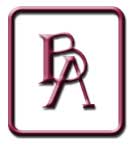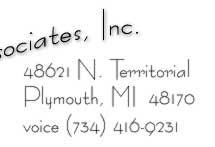


 |
 |
 |
 |
One thing that is on the minds of many computer users is computer viruses. How can I detect them, prevent them and get rid of one if I get it??? We will use this page to try and provide you with current information on viruses. This is like hitting a moving target, because they come out faster than the detection software can be updated, but we'll do our best. We'll keep you advised of the latest threats, the dates of the current data files and information about the current hoaxes. First and foremost, you MUST have some kind of anti-virus protection on your computer. Secondly, you need to keep the virus definition files up to date. We recommend either McAfee Antivirus or Norton Antivirus by Symantec. If you have anti-virus software but your virus definition files are out of date, you are most likely NOT protected from the newest viruses. Therefore, it is imperative to keep your data files up to date also. |
Current Version & Date |
Link
to Current Data Files |
McAfee Data
Files - version 6654 3/19/12 |
Norton Data
Files - File Based Updates (traditional) - version 140318f 132607 3/18/12 rev. 6 |
* * WARNING * * I feel an obligation to insert a warning at this point, if you are a corporate user (using a computer at work) and someone else maintains your computers. PLEASE DO NOT update these files on your own or without direction from your IT professional, you could completely disable your anti-virus software in an attempt to update these files. Also, do NOT perform any of the steps described below to "recover" from a virus hoax, unless directed by your IT person. |
Current
Virus Threats |
| McAfee is reporting no alerts
at this time. (McAfee
Threats Site) Norton is reporting a few new low risk viruses, but no major threats at this time. (Norton Threats Site) |
As if threats by "real" viruses were not enough, there is also a need to deal with virus hoaxes. That's right, there are people out there with too much time on there hands, so they are trying to scare you into thinking you have a virus when you don't. The majority of these are started and kept going by way of email. You may get an email from a friend telling you, I just discovered an infected file on my computer it is called "XYZ.EXE", you should delete this file if you find it on your system. These usually come with directions on where to look for and how to delete the file. Many of these are hoaxes and if the email actually did come from a friend, they sent it without knowing it's a hoax. We will provide you with links to McAfee's & Norton's hoax sections here. Also, we'll keep you informed of the hoaxes we are seeing most frequently with our clients. If you get an email describing a possible infection and a method to delete/clean the virus, try looking at one or both of the links below to see if they are hoaxes. |
Links
to Virus Hoaxes |
McAfee
Virus Hoax Site The virus hoax we continue to see most often is the one involving the file JDBGMGR.EXE, also known as the virus with the "teddy bear icon". We get calls or emails 6-8 times a month on this hoax and probably only 2-4 calls/emails a month on all other hoaxes. If you search for this file on your system, you will probably find it. Unless it has been infected by another virus (i.e. the "W32/Magistr.a@MM" virus), the file is not infected. The good news is, deleting this file will not affect you, this file is the Microsoft Debugger Registrar for Java and is not used by most users. |